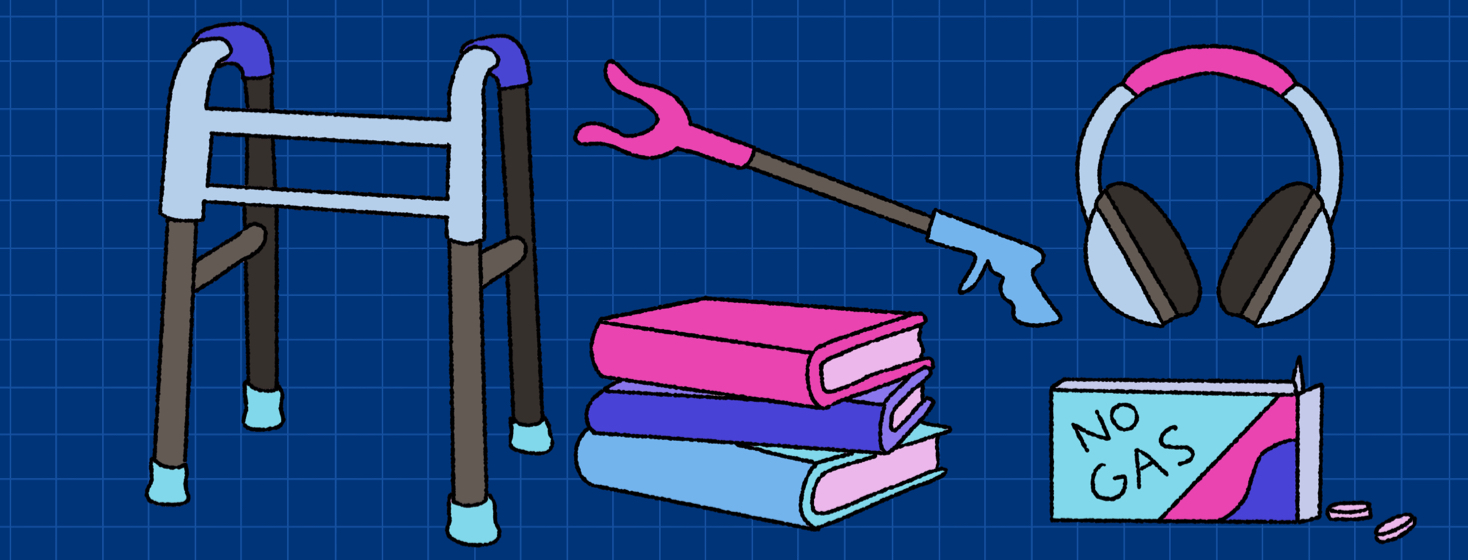Must Haves for Post-Surgery Recovery
You’ve booked your surgery, and now the waiting begins. Hopefully, you won’t be waiting for too long!
Preparing for surgery recovery
Here are some things you can prepare for recovery that I have learned from experience.
Buy a stool softener
Pick up Gas-X and Colace from the pharmacy. Many people experience referred shoulder pain from the gas they pump into their pelvis and abdomen during the surgery.
Gas-X helps to dissipate the gas. Colace makes it much easier to poop; you don’t want to strain at all, and this stool softener can make a difference.
Buy a Squatty Potty
Get a Squatty Potty or equivalent. This helps no matter what kind of endo surgery you have but is especially helpful if you have bowel involvement.
It puts you in a better position for pooping and helps you avoid straining. And if you experience regular constipation, it’s handy to have around all the time.
A walker could help you get around
Rent, borrow, or buy a walker. For the first two surgeries I had, I did not get a walker, and it took me much longer to be mobile.
For my second two surgeries, I borrowed a walker and used it several times during the day to take laps between the two bedrooms in my house. Then I used it for the first couple of walks in my neighborhood.
It helped me get back on my feet faster, which helped me dissipate the gas and regain my strength.
A reach extender can be helpful
Pick up a grabber tool. These are relatively inexpensive and can be a game-changer.
I used my grabber to reach things on or near my bed that I’d strategically placed there, like books, blankets, a drink in a lidded container, my journal, and my laptop.
Once I was on my feet again, I used it to pick up things off the floor when bending wasn’t an option. I like it so much I still use it, especially when dizziness from dysautonomia is happening.
A body pillow is a must for support
A body pillow helps immensely for the nights when you need to sleep sitting up or as a support when you can sleep on your side again. For me, this was the first four or five days post excision surgery.
This is another purchase that has become a daily part of my life; I use it to read, write, and watch shows in bed.
Create a playlist beforehand
Create a playlist of songs you enjoy and/or a watchlist so you don’t have to think too hard about what to do when you’re recovering in bed. Although some doctors will tell you it’s possible to get back to work within a few days, my surgery recovery has always taken at least a week, and once, it took me three weeks.
I have mast cell activation syndrome and potentially Ehlers Danlos syndrome, so my healing is generally slower.
Get a stack of books
Visit the library and get a stack of books you can read while recovering.
Think about how you will eat
Prepare meals you can freeze and heat. Or have a friend, family member, or partner heat them for you. Things that are easy to digest and comforting are good choices.
I made and froze smoothies because it was summer, and they made a great breakfast choice.
Create a meal train and ask your friends to sign up. I had friends bring me gift cards to restaurants and also home-cooked meals.
For a couple of weeks after surgery, I didn’t have to worry about what was for dinner, which made a huge difference.
A couple of book recommendations
This last tip counts as a before and after a recommendation.
Get a copy of Guided Meditations to Support Successful Surgery by Belleruth Naparstek. This fantastic resource includes meditations to visualize a stellar surgery, a progressive relaxation meditation, and a meditation to use for healing once you’ve had surgery.
Similarly, reading the book Prepare for Surgery, Heal Faster by Peggy Huddleston is also quite helpful.
Take your recovery slow
Last, I recommend not comparing your recovery process to anyone else’s. Everyone’s body reacts to surgery differently, and your own body will heal differently from one surgery to the next.
Take all the time you need to get back to your full range of activities and listen to your body when it’s asking for rest. This will mean that your recovery could go more quickly.

Join the conversation